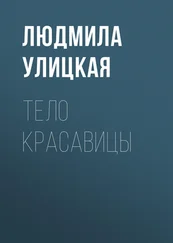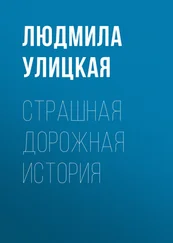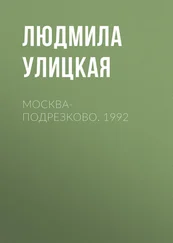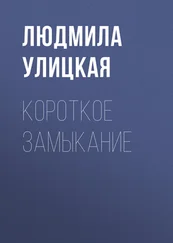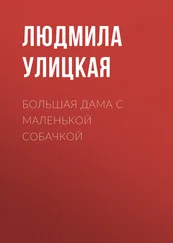which care no more than you if you remember me.
Masha Miller
Butonov read the letter and groaned. Knowing Masha’s personality well enough, he was expecting major ructions when she discovered her rival but had never imagined that her jealousy would be expressed in such a complicated, elaborate manner. He really had pissed her off.
Ten days or so later, having given things a chance to settle down a bit, he rang Masha to ask whether she fancied a trip out to Rastorguevo. After much hesitation, periodical yeses and nos (Butonov could tell even over the telephone that it was exactly what she wanted), she agreed.
At Rastorguevo everything was new. There had been a heavy snowfall, so heavy that the path from the gate to the porch had been buried, and in order to drive the car in Butonov had had to scrape the snow up with a wooden shovel into a large snowdrift.
It was cold in the house: it seemed colder inside than out, but Butonov promptly gave Masha such a workout that they both started feeling too hot. She moaned through her tears, and kept pleading, “Say no!”
“What do you want ‘no’ for, when it’s all ‘yes, yes, yes’!” Butonov laughed.
After that he lit the stove, opened a tin of sardines in tomato sauce which had been around for ages, and ate it himself, Masha barely touching it. There was nothing else in the house.
They decided not to go back to Moscow and walked to the railway station. Masha rang home from the public telephone and told Debora Lvovna that she wouldn’t be home that night, as she was visiting friends at their dacha and didn’t want to come back so late.
Her mother-in-law flared up: “Of course not! You don’t care two hoots about your husband and child! If you want to know what that’s called—”
Masha hung up.
“That’s all fixed. I told them I wouldn’t be home.”
They walked back to the house along a path of white snow. Butonov showed her the windows of the apartment block where Vitka Kravchuk lived.
“Want to drop in?” he enquired.
“God forbid,” Masha laughed.
It was cool in Butonov’s house. It did not hold the heat.
“Next on the list is a new stove. I’ll put one in next year,” Butonov resolved.
They settled themselves in the kitchen, where it was at least a bit warmer, and dragged mattresses in from all over the house. They had no sooner warmed up, however, than Butonov got pains in his stomach and went out to the toilet in the courtyard. He came back and lay down. Masha, running her finger over his face, began talking about the spirituality of sex, and the personality which expresses itself through touch.
The tinned sardines had Butonov running out to the courtyard all night. His stomach was churning, and the tender voice of unsleeping Masha cooed on in tones of neurotic enquiry.
To give him his due, he was polite and didn’t ask her to shut up. Only sometimes, when the pain subsided a bit, he slumped into sleep. In the morning as they were driving back to Moscow, Butonov said, “One thing I really am grateful to you for at this moment is that when I was suffering from the runs you did me the favor of not reciting any poetry at me.”
Masha looked at him in astonishment: “But I did, Valerii. I recited ‘Poem Without a Hero’ to you from start to finish.”
Masha’s relations with her husband did not come unstuck, but recently they had been seeing less of each other. The invitation they had received had not been submitted yet because Alik wanted to resign from his job before filing the application, and before that there was a series of experiments he needed to finish.
He disappeared into the laboratory until late at night and turned down any further emergency-duty work. He periodically carted a rucksack full of books to the secondhand bookshop, since he was going to have to say goodbye to his father’s library. He could see Masha was disturbed and jumpy, and treated her solicitously, like a patient.
In December, Butonov went off to Sweden, for a couple of weeks, he said vaguely, although of course he knew perfectly well which day he would be back. He liked his freedom. Nike barely noticed his absence. She had a children’s play to get ready in time for the school holidays, and in any case Vakhtang had finally arrived and she spent all her free time with him and his Moscow Georgian friends. Life was a busy whirl of restaurants, sometimes at the Cinema Club, sometimes at the Theater Society.
Masha pined. She kept trying to get through to Nike to talk to her about Butonov, but Nike was incommunicado. Masha had no wish to talk to other friends about him, and in any case it would have been impossible.
Insomnia, which until then had only been sharpening its claws, overwhelmed Masha in December. Alik brought her sedatives, but the artificial sleep was even worse than the insomnia. Her obsessive dream would start at any random place but led always to the same ending: she was trying to find Butonov, to catch up with him, but he kept slipping away, spilling like water, turning into different objects, as if in a fairy tale, dissolving, vanishing into smoke.
Twice Masha went to Rastorguevo just for the sake of making the journey from Paveletsky Station, taking the train to his stop and walking to his house, to stand for a time at the gate, see the house shrouded in snow, look at its dark windows, and go back home. In all, it took around three and a half hours, and the journey there was more enjoyable than the journey back.
Two weeks passed and still there was no sign of him. Masha rang his home in Khamovniki. An elderly woman told her in a weary voice that he would be back at around ten; but he wasn’t there at ten, or at eleven, and the next morning the same voice replied, “Call again on Friday.”
“But has he come back?” Masha asked timidly.
“I said ring on Friday,” the woman replied rattily.
It was still only Monday.
“He’s come back and hasn’t phoned,” Masha thought, hurt. She called Nike to ask whether she knew anything about Butonov’s whereabouts, but Nike didn’t.
Masha set off for Rastorguevo again, this time in the late afternoon. The snow had been cleared away from the gates of his house, and they were closed and locked. His car stood in the yard. In his grandmother’s half a faint light was burning. Masha yanked the icy side gate. The path to the house was deep in snow, and as she walked along, she sank almost up to her knees in it. She rang the bell for a long time, but nobody opened the door.
She wanted to wake up, so much did all this feel like one of her dreams, just as vivid and hurtful; and Butonov gave some flickering sign of his presence in just the same way: his beige car parked there with a blanket of snow on the roof. And she couldn’t get hold of Butonov himself.
Masha stood around for forty minutes or so and left.
“Nike must be in there,” she concluded.
In the train she was thinking not of Butonov but of Nike. Nike had been part of her life from an early age. They were linked, quite apart from everything else, by a physical liking for each other. Since she was a child Masha had loved Nike’s full, puckered lips, her endless supply of smiles, the creases of hidden laughter at the corners of her mouth, her rustling red hair; and in just the same way Nike had liked Masha’s diminutiveness, her little feet, her gawkiness, the delicacy in every aspect of her being.
Masha for her part would unhesitatingly have preferred to be Nike than herself. Nike, of course, didn’t lose time thinking about things like that. She had all she needed in herself.
And now Butonov had joined them together in some sacramental way, like Jacob marrying two sisters. They could have been called comrades-in-arms. Jacob entered the tents, took the sisters, took their handmaidens, and they were one family. And what after all is jealousy but another form of covetousness? You can’t possess another person. Well then, let it be: everybody would be brothers and sisters, husbands and wives. She smiled to herself, thinking about utopian Chernyshevsky and the grand brothel in one or other of the dreams of his heroine in What Is to Be Done?
Читать дальше

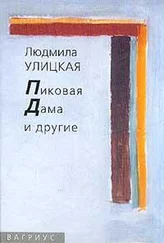
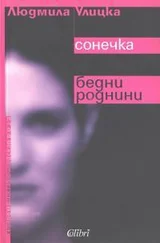

![Людмила Улицкая - Сквозная линия [litres]](/books/393468/lyudmila-ulickaya-skvoznaya-liniya-litres-thumb.webp)
